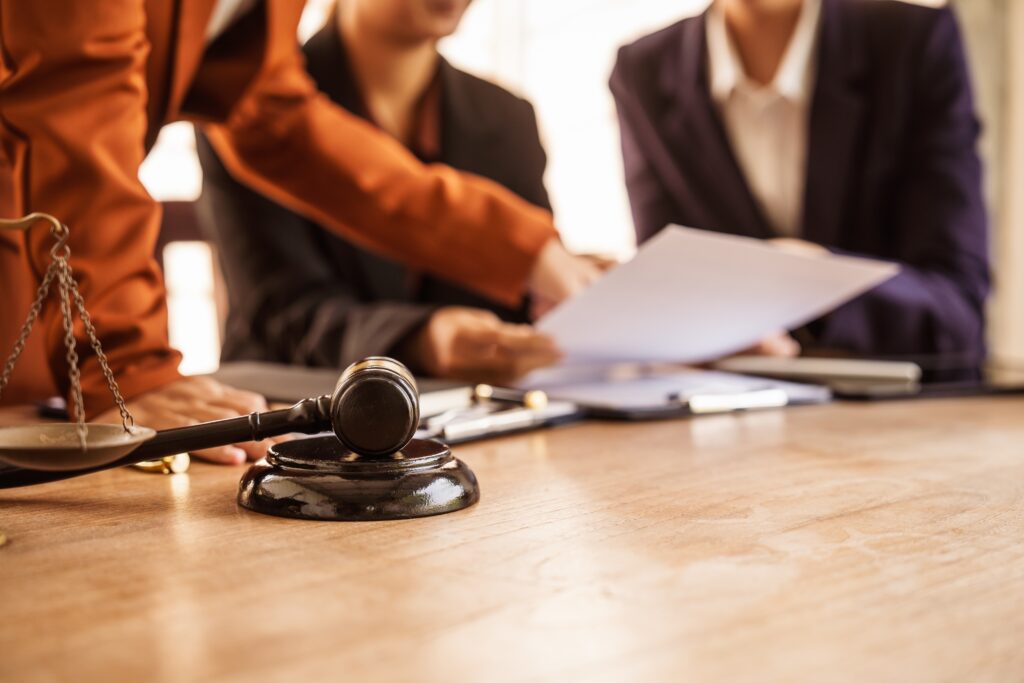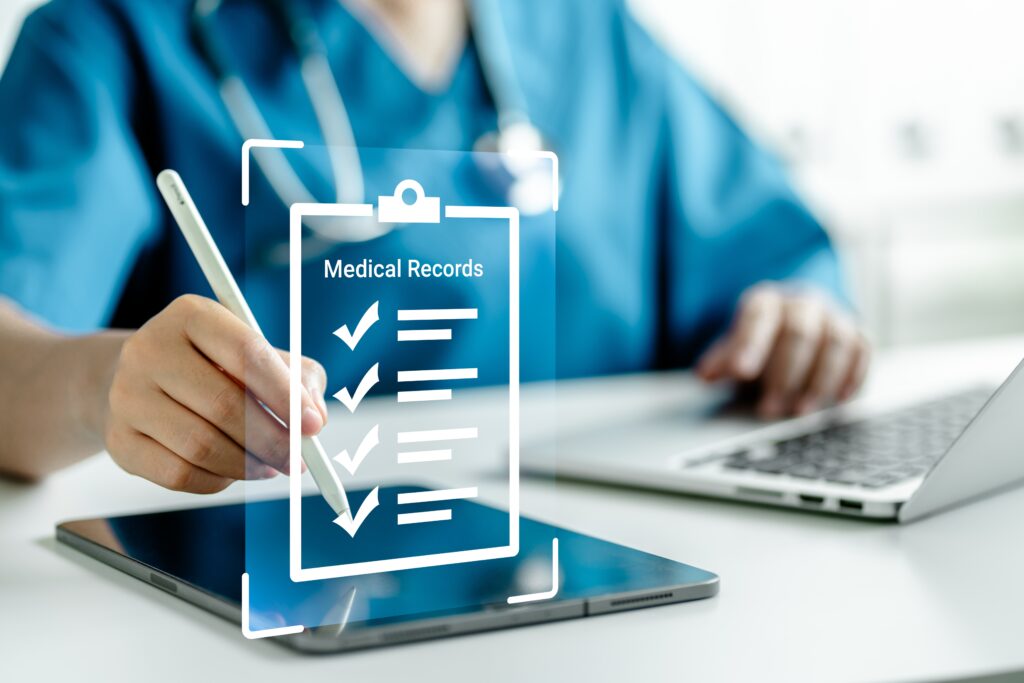When you schedule your free case evaluation with a Norristown personal injury lawyer, it's your first chance to get your case off the ground. The success of your meeting largely depends on the preparation you do beforehand. Having the right documents and information ready helps you make the most of the session.
You may feel unsure about what to bring, but that's normal. This guide will give you everything you need to ensure your evaluation is smooth, productive, and worth your time.
Get A Free Consultation Today!
Norristown Personal Injury Guide
- Personal Identification Documents
- Details About the Accident or Incident
- Police or Accident Reports
- Medical Records and Bills
- Proof of Lost income
- Insurance Information
- Photos and Videos
- Witness Contact Information
- A List of Questions
- Documentation of Property Damage
- Evidence of Emotional or Psychological Impact
- Any Settlement Offers You've Received
- Notes About the Impact on Your Daily Life
- Financial Records
- The Importance of Preparation
- Wrapping Up Your Case Evaluation
- Your Attorney is on Your Side
- Schedule Your FREE Consultation Today
Personal Identification Documents

The first thing to bring with you is your identification. You want to make sure your personal injury lawyer knows exactly who you are and can connect your identity with the details of your case. Your driver's license, state-issued ID card, or passport will work just fine. Bringing this information also ensures no confusion about your personal details later, which can help avoid unnecessary delays in the future.
Details About the Accident or Incident
Your case will center on the specific details of your accident or injury, so you'll need to provide as much information as possible during your evaluation. Start by writing down everything you remember about the incident. This should include the time, date, location, and a step-by-step recount of what happened.
Be as specific as you can. The more detail you give, the better picture your personal injury lawyer will have of your situation. If you feel like you're missing details or don't remember everything clearly, that's okay – just include as much as you can recall.
Police or Accident Reports
If law enforcement was involved, you likely received a police or accident report. These documents are vital for giving your personal injury attorney an official record of what happened.
Police reports often include important information such as who was involved, witness statements, any violations of the law, and the officer's observations of the scene. If you haven't yet received a copy of the report, don't worry – you can request one from the police department. This report will allow your lawyer to assess how officials documented the incident.
Medical Records and Bills

Your medical records and bills are central to your personal injury case. After all, your injury is the reason for your case. You want to bring along any documentation showing your diagnosis, treatment, and how much your medical care has cost. These records may include hospital discharge papers, notes from your doctor, X-rays, and any prescriptions you've had filled.
It's also helpful to bring a list of future appointments or any recommended treatments you haven't completed yet. Your personal injury lawyer will use this information to understand your injury's severity and what kind of compensation might be necessary to cover your expenses.
Proof of Lost income
If your injury has forced you to miss work, bringing proof of lost earnings to your case evaluation is important. You may be entitled to compensation for the income you've missed. To do this, gather recent pay stubs and a record of the days you've missed. If your employer has provided any written communication regarding your time off or reduced work hours, include that as well.
In some cases, you may need a letter from your employer that confirms the time you've missed and how much you would have earned had you been able to work. Your personal injury lawyer can use this information to argue for compensation related to your loss of income.
Insurance Information
Your insurance coverage is an important piece of the puzzle. Bring all the relevant documents with you, whether it's health insurance, auto insurance, or another type of coverage. If you've already filed any claims with your insurance company, bring the documentation you received after filing and any letters or emails from your insurance provider. Your personal injury attorney must understand your policy and what the insurer has already covered. You may also want to bring information about the other party's insurance, if applicable.
Correspondence with Insurance Companies
If you've had communication with insurance companies following your accident or injury, bringing those records to your evaluation is essential. Whether it's emails, letters, or phone call logs, these interactions can be used to assess how your claim has been handled so far.
Insurance companies may try to settle quickly or deny parts of your claim, and your lawyer can review their responses to determine whether they've treated you fairly. These communications will help your personal injury lawyer understand what steps have already been taken and what still needs to be done.
Photos and Videos
Photos and videos can provide powerful visual evidence of the incident and your injuries. If you took pictures or recorded video of the accident scene, the damage to property, or your visible injuries, make sure to bring those files to the meeting. These visuals can give your personal injury lawyer a better sense of the situation and help build your case.
Photos of your injuries from different stages of your recovery can also be useful in demonstrating how the injury has impacted your life over time. Bring digital files on a USB drive or save them on your phone to be easily shared.
Witness Contact Information
Were there any witnesses who saw the accident or injury happen? If so, their statements can strengthen your case. Bring the names, phone numbers, and email addresses of witnesses with important information to share. Witnesses can often provide perspectives that back up your own account of the event, making their testimony valuable. Even if you're unsure if a particular person's statement will help, your personal injury lawyer can determine the best way to use the information.
A List of Questions
You probably have a lot of questions about what comes next. Write them down before your evaluation so you don't forget to ask them when you meet with your personal injury lawyer. Maybe you're wondering how long the case might take, or you're concerned about what happens if the other party refuses to negotiate. Whatever questions you have, don't hesitate to bring them up. Your personal injury lawyer is there to help guide you through the process, and getting your questions answered now will give you greater confidence moving forward.
Documentation of Property Damage
If your case involves damage to your property, such as a car accident, bring any documentation of the damage with you. This can include repair estimates, bills for repairs, or receipts for any temporary fixes you've made. Photos of the damaged property can also help demonstrate the extent of the damage. Your personal injury lawyer will need this information to accurately assess the full scope of your claim and ensure you're seeking the appropriate compensation.
Evidence of Emotional or Psychological Impact
Personal injury cases aren't just about physical harm – they often involve emotional or psychological damage as well. If you've been seeing a therapist, counselor, or another mental health professional as a result of the accident or injury, bring any relevant records or notes from those sessions. If you've experienced anxiety, depression, or other psychological effects, these details can play a role in determining your compensation. Your personal injury lawyer will want to understand the full impact the incident has had on your physical and emotional life.
Any Settlement Offers You've Received

If you've already received any settlement offers from the other party or an insurance company, bringing those with you is important. Your personal injury attorney will want to review the terms of the offer to see if it's fair. In many cases, initial offers may be too low, and having a lawyer on your side can help you negotiate for a better deal. Bring all the paperwork related to the settlement offer so your lawyer can provide advice on how to proceed.
Notes About the Impact on Your Daily Life
An important part of your case is how the injury affected your daily life. Before your evaluation, take some time to think about how your life has changed since the injury. Are you unable to do certain activities you used to enjoy? Has your injury made it difficult to complete household tasks, care for your family, or go to work?
Write down these thoughts and bring them with you to share with your personal injury lawyer. These details will help your lawyer understand the full impact of the injury and argue for appropriate compensation.
Financial Records
Your injury may have led to financial difficulties, especially if you can't work or have incurred significant medical bills. Bringing financial records to your case evaluation can help your personal injury lawyer understand the broader impact of your injury. You may want to bring bank statements, proof of any loans or lines of credit you've had to take out, and records of any other expenses related to the injury. The more documentation you provide, the easier it will be for your lawyer to build a strong case for financial compensation.
The Importance of Preparation
Your free case evaluation is the first step in building a strong foundation for your personal injury case. By showing up prepared, you'll make the most of the meeting and set yourself up for a successful claim. It may take some time to gather all the necessary documents and information, but it's worth it. The more prepared you are, the smoother the process will be. Bringing the right materials gives you a better chance of receiving fair compensation for your injury.
Start by collecting the key items your personal injury lawyer will need to assess your case. This includes accident reports, medical records, bills, photos of the accident or your injuries, and any communication with insurance companies. Each piece of evidence will help your attorney understand the situation and how to proceed.
Your preparation also shows your personal injury lawyer that you're committed to getting results. When you come prepared, your attorney can spend more time strategizing and less time gathering the basics. This boosts the chances that your case will move forward quickly and efficiently.
Improving Your Chances for Success
Preparing for your case evaluation isn't just about showing your personal injury lawyer that you've done your homework. It directly impacts the strength of your case. The more information you bring, the better your personal injury lawyer can understand your situation and determine the best approach.
When fully prepared for your case evaluation, you'll walk away with a clear understanding of what comes next. The confidence and clarity you gain from this preparation will greatly affect how your case progresses. You'll know you've taken the first step toward resolving your case and getting the compensation you deserve.
By gathering the right information and documents, you're setting yourself and your lawyer up for success. It may take a bit of effort, but in the long run, it'll make all the difference as your case moves forward.
Wrapping Up Your Case Evaluation
As you wrap up your case evaluation, take a moment to review everything you've discussed with your personal injury lawyer. Ensure you've provided all the key documents, asked any lingering questions, and clarified the next steps. If you forgot to bring something important, let your attorney know – they'll advise you on how to send those items after the meeting.
Don't leave without feeling confident that you've covered all your bases. Your case evaluation is your opportunity to ensure your lawyer has everything they need to move forward with your claim.
Your Attorney is on Your Side
Your personal injury lawyer is there to protect your rights and fight for the compensation you deserve. You're giving them the tools to do just that by bringing the necessary items to your evaluation. The more you can provide upfront, the faster your lawyer can build a strong case on your behalf.
Schedule Your FREE Consultation Today
It's important to remember that your attorney is working with your best interests in mind. They'll guide you through the legal process, ensuring you understand each step and feel comfortable with the direction your case is taking. With the right preparation, you'll give your personal injury lawyer the advantage they need to represent you effectively. Please don't hesitate to schedule your free case evaluation as soon as possible.
